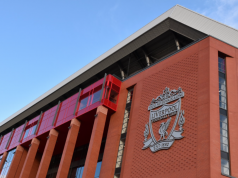To say that Corriere dello Sport are upset about the idea that Sandro Tonali is on his way to Newcastle United is an understatement.
We say this because the newspaper feature a column in their Friday edition taking a look at the Magpies, where the journalist paints a rather poor picture of the club.
The headline says it all, describing Newcastle as a club with ‘little history’ and ‘zero debt’, labelling the whole situation around them a ‘phenomenon’.
Now, they expand on this immediately, recalling how close to relegation the club were back in the autumn of 2021 before the PIF fund took over from Mike Ashley as owners.
They look at the moves made immediately after that, with the first being the sacking of Steve Bruce and appointment of Eddie Howe, as they spent €130m in the first transfer window, signing the likes of Bruno Guimaraes and Kieran Trippier to help the new manager.
Then came another €185m the following summer, allowing Newcastle to improve as a team, with Howe steering them into the top four in their first full season under PIF.
This is when it all takes a bit of a negative turn, as Corriere tell their readers that Newcastle ‘are not among the most glorious clubs in English football’, recalling that they only have four titles lost ‘in the mists of time’, with the latest coming in 1920s ‘when the Premier League didn’t even exit, or at least it wasn’t called that’.
 Calling the 50s the club’s ‘golden age’ when they won three FA Cups, they then recall the last glories came in the 1990s when Alan Shearer was their attacking focus and the club ‘came close to the title twice’.
Calling the 50s the club’s ‘golden age’ when they won three FA Cups, they then recall the last glories came in the 1990s when Alan Shearer was their attacking focus and the club ‘came close to the title twice’.Then, they take a dig at Newcastle itself, describing the city as ‘the least glamorous imaginable’, before pointing out that ‘money, as we know, has the power to transform things’.
They look at the club’s finances, and predict that the Magpies will never have to worry about being in debt, as ‘it is safe to bet that sponsors will pour in from companies’ related to PIF.
It did take a long time for the Premier League to agree to the Saudi Arabian fund’s takeover due to the ‘subject of human rights stimulated in the United Kingdom’ before it was ‘finally authorised behind pale reassurances’.
This, they describe as a ‘classic case of British hypocrisy’ because ‘pecunia non olet’ (‘money doesn’t stink’ in Latin) and ‘foreign money is always welcome’.
























